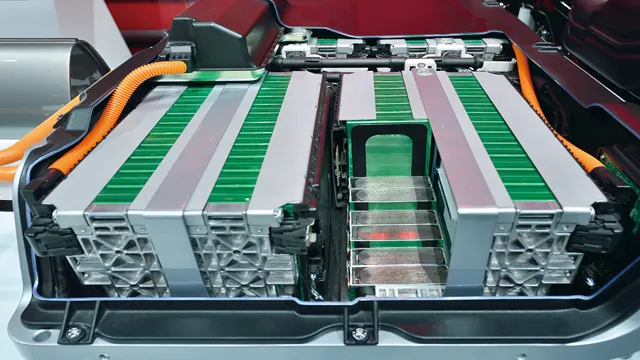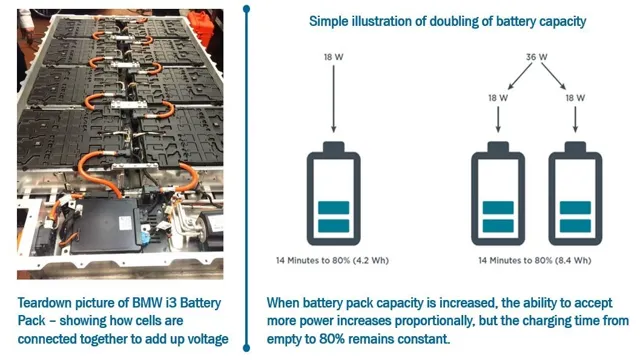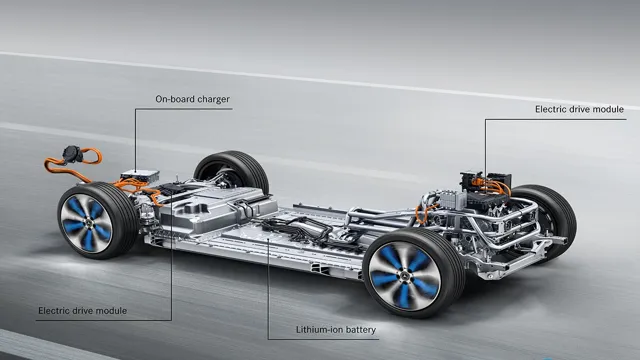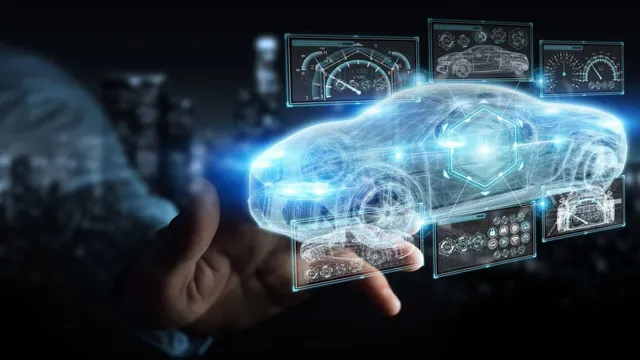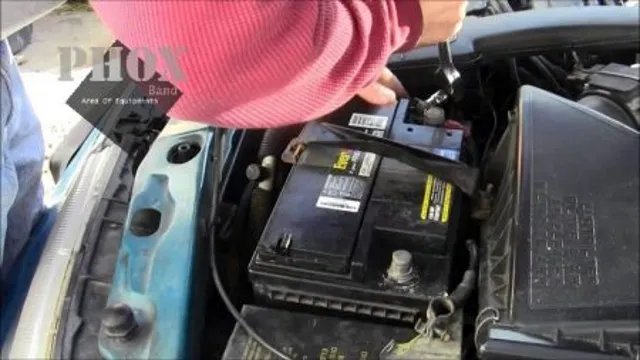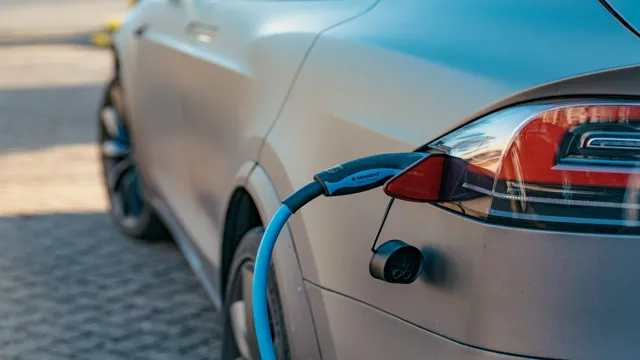The Power to Move: A Comprehensive Guide to Battery Types in Electric Cars
Electric cars have been the buzzword in the automobile industry as they promise an eco-friendly driving experience, lower emissions, and lower fuel costs. Electric vehicles (EVs) rely on electric motors powered by electric car batteries, making them convenient for short and long commutes alike. However, not all electric car batteries are created equal.
In this blog, we’ll dive deep into the types of electric car batteries and their unique properties. Whether you’re an electric car enthusiast or just curious about EV technologies, this blog will provide you with insightful knowledge about the futuristic batteries powering the EV industry. So, fasten your seatbelts and get ready to explore the world of electric car batteries!
Lithium-Ion Batteries
When it comes to electric cars, one of the biggest concerns for drivers is the battery life. Lithium-ion batteries are the most commonly used battery type in electric cars due to their high energy density and long lifespan. These batteries are made up of lithium-ion cells that are connected together to form a battery pack.
The energy is stored in the battery pack and is used to power the electric motor, which in turn drives the wheels of the car. Lithium-ion batteries are known for their ability to provide consistent power over time, meaning that they won’t lose their charge quickly and will retain their charge even when not in use. Plus, they are rechargeable, which makes them ideal for use in electric cars.
Compared to other battery types, such as lead-acid or nickel-metal hydride, lithium-ion batteries are more efficient, have a longer lifespan, and are more environmentally friendly. As technology advances, we can expect to see even more improvements in battery technology, making electric cars an even more practical and sustainable option for drivers.
High Efficiency
High Efficiency When it comes to high efficiency, lithium-ion batteries are the gold standard. These batteries are much lighter and more powerful than other types of batteries, which makes them perfect for use in everything from smartphones to electric vehicles. One of the main reasons for this is that they have a higher energy density than other types of batteries.
This means that they can store more energy in a smaller space, which makes them incredibly efficient. In addition, they have a very low self-discharge rate, which means that they can hold their charge for a long period of time without needing to be recharged. And because they don’t suffer from the same memory effect as other types of batteries, they can be charged and discharged hundreds of times without losing their capacity.
All of these factors make lithium-ion batteries the clear choice for anyone looking for high efficiency and long-lasting power.
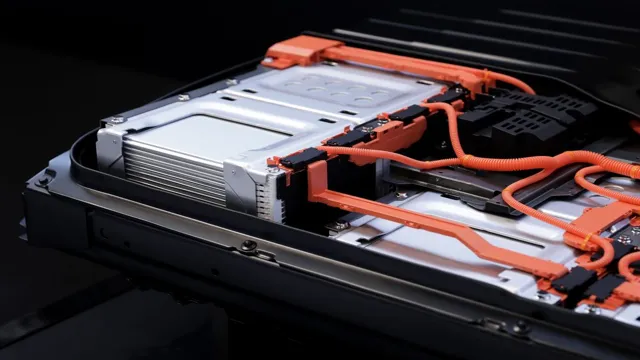
Longer Lifespan
When it comes to the world of batteries, lithium-ion batteries reign supreme in terms of longevity. These high-energy-density batteries are designed to last longer than any other type of battery, making them perfect for a wide range of applications, from smartphones to electric vehicles. Lithium-ion batteries use a combination of lithium compounds to store energy, which allows them to store more energy per unit weight than any other battery type currently available.
Thanks to their high energy density, lithium-ion batteries last longer than other types of batteries, which means you can use them for longer periods without worrying about having to recharge them constantly. Overall, if you want a battery that lasts longer, provides more power, and is more efficient than traditional batteries, then lithium-ion batteries are definitely the way to go.
Faster Charging Time
Lithium-ion batteries are game-changers in the world of charging technology. They are known for their efficiency, durability, and incredible charging speed. Lithium-ion batteries can charge up to 80% of their capacity in just 30 minutes.
This is a significant improvement when compared to the older generation of batteries, which could take up to six hours to achieve this same result. The secret to their speed lies in the materials used to make lithium-ion batteries. The batteries make use of a chemical reaction between lithium ions and an electrolyte solution.
These reactions cause the ions to move between a cathode and an anode, generating an electrical current which is stored as energy. This chemical reaction is efficient and does not produce any heat, which makes the charging process faster and safer. Furthermore, lithium-ion batteries have a high energy density, which means that they can store a large amount of energy in a small space.
This has also contributed to their fast charging time and made them the preferred choice for devices such as smartphones, laptops, and electric vehicles. In conclusion, lithium-ion batteries are revolutionizing charging technology as we know it. Their fast-charging capabilities are a result of the materials used to make them and the chemical reaction that powers them.
As technology advances further, it is likely that we will see even better versions of lithium-ion batteries in the future.
Lead-Acid Batteries
Lead-acid batteries were once the go-to battery type in electric cars due to their reliability, affordability, and wide availability. However, with the advancements in battery technology, newer battery types such as lithium-ion have taken over the market due to their higher energy density and longer lifespan. Lead-acid batteries have a lower energy density than lithium-ion batteries and typically have a shorter lifespan.
Additionally, lead-acid batteries require more maintenance and have a slower charging rate. While they may still be used in some electric cars, they are no longer the preferred choice for many manufacturers. However, lead-acid batteries still have their place in other industries such as golf carts and boats.
As technology continues to evolve, it will be interesting to see if lead-acid batteries will continue to be used in electric cars or if they will be replaced completely by newer and more advanced battery types.
More Affordable
Lead-acid batteries are an affordable option for many consumers looking to power their various devices. These batteries have been around for over 150 years and remain popular due to their reliability and efficiency. One of the main benefits of lead-acid batteries is their affordability.
They are one of the most cost-effective battery options on the market, making them accessible to a wider range of users. Additionally, lead-acid batteries have a low self-discharge rate, meaning they can retain their charge for extended periods without use. This makes them ideal for emergency backups and other applications where consistent and reliable power is necessary.
While they may not be as lightweight or long-lasting as some other battery types, lead-acid batteries remain a reliable and affordable option for many users.
Less Energy Dense
Lead-Acid Batteries are a type of rechargeable battery that is commonly used in automobiles, UPS systems, and solar power applications. These batteries have a low energy density, meaning they have a relatively low amount of energy stored per unit of weight. This can make them bulkier and heavier than other types of batteries with higher energy densities.
Although lead-acid batteries have been in use for over a century, advancements in technology have led to the development of more energy-dense batteries that can store more power with less weight and volume. However, lead-acid batteries are still a popular choice due to their affordability, reliability, and ease of maintenance. Overall, while they may not be the most energy-efficient option, lead-acid batteries still serve an important function in many industries.
Shorter Lifespan
Lead-acid batteries are commonly known to have a shorter lifespan compared to other types of batteries. This is because of the nature of the chemistry involved in lead-acid batteries. Over time, the lead plates in a lead-acid battery can become corroded or damaged, reducing the battery’s ability to hold a charge.
Additionally, lead-acid batteries are more prone to self-discharge than other types of batteries, which means that they can lose their charge even if they are not being used. This can be frustrating for those who rely on lead-acid batteries for their everyday needs. Using a battery maintainer or regularly charging the battery can help extend its lifespan, but eventually, the battery will need to be replaced.
Overall, while lead-acid batteries are a reliable and cost-effective option for many applications, it’s important to keep in mind their limitations when it comes to their lifespan.
Nickel-Metal Hydride Batteries
When it comes to electric cars, one of the most important components that determine their performance and reliability is the battery system. While there are a few types of batteries that can be used, one of the most common ones is the nickel-metal hydride (NiMH) battery. These batteries are known for their high energy density, meaning they can pack a lot of energy into a relatively small space.
This makes them ideal for use in electric cars, as they can provide a lot of power without taking up too much space. NiMH batteries are also known for their long lifespan, meaning they can last for many years with proper maintenance. Additionally, they are relatively inexpensive to manufacture, which makes them a popular choice for automakers looking to keep costs down.
Overall, NiMH batteries are a reliable option for electric cars, providing a good balance of performance, durability, and affordability.
Moderate Efficiency
Nickel-Metal Hydride batteries are a type of rechargeable battery that has been around since the 1980s. These batteries offer moderate efficiency as compared to other types of batteries in the market. One of the biggest advantages of these batteries is that they are very affordable and widely available.
They are used in a variety of applications, such as portable electronics, power tools, and even in electric vehicles. Nickel-Metal Hydride batteries, often abbreviated as NiMH batteries, use a hydrogen-absorbing alloy instead of toxic and hazardous cadmium found in older nickel-cadmium batteries. This makes them much safer for the environment and users.
Additionally, these batteries have a significantly longer lifespan than their predecessors and can be charged multiple times without significantly diminishing their capacity. While NiMH batteries are not as efficient as lithium-ion batteries, they are still a popular choice for many users, especially those looking for a more cost-effective option. They also have a more stable discharge rate than other types of batteries, meaning they maintain a consistent output of power over time.
In conclusion, nickel-metal hydride batteries offer moderate efficiency and a more cost-effective option for users. They are widely available and used in a variety of applications, making them a popular choice for many. However, it’s essential to note that they are not as efficient as other battery types and may require more frequent charging.
Overall, NiMH batteries are a reliable and practical choice for many users.
Moderate Lifespan
Nickel-metal hydride batteries are a type of rechargeable battery that has been around for quite some time. They have a moderate lifespan, meaning they last longer than alkaline batteries but not as long as lithium-ion batteries. Nickel-metal hydride batteries are commonly used in portable electronic devices, such as digital cameras and portable MP3 players.
These batteries are ideal for use in these devices because they have a high energy density and can provide a lot of power in a small space. However, one thing to keep in mind is that nickel-metal hydride batteries can lose their charge over time. If you’re not using your electronic device for a while, it’s best to remove the battery to prevent it from losing its charge.
Overall, nickel-metal hydride batteries are a great choice for those looking for a rechargeable battery that can provide a lot of power in a small space.
Moderate Charging Time
When it comes to rechargeable batteries, nickel-metal hydride (NiMH) batteries offer a moderate charging time. One of the main advantages of NiMH batteries is their ability to be charged quickly, saving you time and hassle. Unlike other types of rechargeable batteries that require hours to fully charge, NiMH batteries can be charged in just a few hours, depending on their capacity.
Additionally, they can be recharged hundreds of times, making them an ideal choice for those looking for a reliable and cost-effective power source. NiMH batteries also have a higher energy density compared to their nickel-cadmium counterparts, meaning they can store more energy in the same amount of space. This makes them a popular choice for use in battery-powered electronics, such as cameras, toys, and portable audio devices.
Overall, their moderate charging time and other benefits make NiMH batteries a great choice for those looking for a reliable and affordable power source.
Conclusion
In conclusion, choosing the right battery type for an electric car is crucial for its overall performance. From nickel-cadmium to lithium-ion, the type of battery can affect the range, acceleration, and charging speed of the vehicle. It’s like choosing the right fuel for a gas-powered car – you wouldn’t put diesel in a gasoline engine, would you? So, when it comes to electric cars, the battery type is the heart of the vehicle, and choosing the right one will keep it running smoothly.
We may not be able to plug ourselves in for a quick recharge, but with the right battery, our electric cars will be a step closer to achieving that futuristic dream.”
FAQs
What types of batteries are generally used in electric cars?
The two most common types of batteries used in electric cars are lithium-ion batteries and nickel-metal hydride batteries.
What is the difference between lithium-ion batteries and nickel-metal hydride batteries?
Lithium-ion batteries have a higher energy density and are lighter, while nickel-metal hydride batteries are more durable and have a longer lifespan.
Can electric cars use traditional lead-acid batteries?
While it is possible to use lead-acid batteries in electric cars, they are not commonly used because they are heavier, have a lower energy density, and do not last as long as other battery types.
What is a solid-state battery and how does it differ from traditional batteries?
Solid-state batteries use a solid electrolyte instead of a liquid electrolyte, which makes them lighter, more energy-dense, and have a longer lifespan than traditional batteries. However, they are currently more expensive to produce and are still in the experimental phase of development for electric cars.
